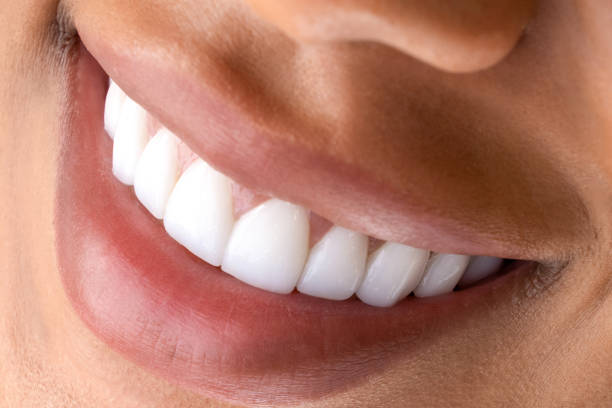Teeth whitening is one of the most popular cosmetic dental treatments today. Whether you’re preparing for a big event or simply want a confidence boost, knowing how many sessions are needed and which method suits you best is key to achieving a bright, lasting smile.
Understanding Teeth Whitening Technologies
Teeth whitening involves the use of peroxide-based agents to lighten tooth stains. Depending on your preference, teeth can be whitened either professionally at a dental practice or through at-home kits. Each method uses different technologies that impact their effectiveness and results.
Types of Teeth Whitening Treatments
Professional In-Office Whitening
This method offers instant results in usually just one session. It uses high-concentration whitening gels activated by specialised lights or lasers. Dentists will assess the condition of your teeth to tailor the treatment, often producing dramatic improvements.
How long do teeth whitening results last in St Helens?
At-Home Whitening Kits
These include custom trays or ready-made strips with milder whitening agents. While results are gradual and take several days to weeks, at-home kits are an affordable, convenient alternative that can still deliver noticeable whitening when used properly.
How Many Sessions Are Needed?
The number of sessions required depends on the method used and the level of staining. Professional in-office whitening often achieves optimal results in 1–2 treatments, whereas at-home kits may require 10–14 consecutive days of use. Some individuals may need a combination of both for the best outcome.
Who Can Benefit from Teeth Whitening?
Teeth whitening is ideal for individuals with surface-level discolouration caused by food, drink, smoking, or ageing. However, it may be less effective on intrinsic stains or dental restorations like crowns and fillings. A dental consultation can help determine suitability.
What is teeth whitening and how does it work in St Helens?
Pros and Cons of Each Whitening Method
Professional Whitening
Pros:
- Fast results
- Tailored care
- Expert supervision
At-Home Whitening
Pros:
- Budget-friendly
- Easy to use at your convenience
Is Teeth Whitening Safe?
When done correctly, teeth whitening is generally safe. Professional treatments are overseen by dental experts, minimising risks. At-home products should be used as directed to avoid enamel damage or gum irritation.
Safety Considerations and Ingredients to Watch
Look for products that contain hydrogen peroxide or carbamide peroxide–these are the most effective and widely studied whitening agents. Avoid DIY remedies like baking soda or lemon juice, which can erode enamel over time.
Are there different types of teeth whitening treatments available in St Helens?
Potential Side Effects
Temporary sensitivity and gum irritation are the most common side effects. These typically subside within a few days. Using sensitive toothpaste and avoiding overly hot or cold foods can help ease symptoms.
Comparing Effectiveness and Consumer Reviews
Professional treatments usually exceed expectations in terms of speed and uniformity, while at-home kits, though effective, often yield varied results. Choose a method aligned with your smile goals, budget, and tolerance for longer treatment durations.
Making an Informed Decision: Which Treatment is Right for You?
Your choice should depend on the severity of staining, time constraints, and sensitivity levels. If you want guaranteed, quick results, professional treatment is worth the investment. For mild discolouration and convenience, at-home kits can still be effective.
Cost Analysis
In-office whitening typically ranges depending on the level of customisation and technology used. Home kits are much cheaper, starting around a certain price, with advanced systems priced higher. Remember to factor in repeat purchases or touch-up kits.
How Long Do Results Last?
This depends on your oral hygiene and lifestyle. Professional results may last up to 12–24 months with good maintenance. At-home whitening tends to fade sooner and may require regular top-ups every few months.
Maintaining White Teeth: Tips and Tricks
- Brush twice daily and floss regularly
- Limit foods and drinks that stain (coffee, tea, red wine)
- Use a whitening toothpaste for maintenance
- Attend regular dental cleanings
- Avoid smoking or tobacco products
Before and After Teeth Whitening
Before beginning any whitening treatment, it’s important to have a clean dental surface free of plaque. Professional ‘before and afters’ can be dramatic, showcasing whiter, more even smiles that enhance confidence and youthfulness.
Consultation with a Dentist: Expert Guidance
A dental consultation is the best way to determine which type of whitening is suitable for you. They will assess your oral health, discuss expectations, and create a customised plan to achieve your desired results safely.
Case Study: Whitening Success
Many patients have experienced significant improvements following both in-office and home whitening programmes. With professional oversight, even smokers and long-term coffee drinkers can lighten their teeth by several shades.
Conclusion
Teeth whitening is a safe, effective way to refresh your smile. By understanding the available options and how many sessions you may need, you can set realistic expectations and achieve lasting results. Whether you choose professional treatments or home kits, consistency and aftercare are key to maintaining that brighter smile.
Call to Action
Ready to brighten your smile? Book a consultation today to explore the best whitening option tailored to you.
FAQs
How long does each whitening session take?
In-office treatments usually take around 60–90 minutes. At-home kits, depending on the product, require 30–60 minutes per day over multiple days.
Can sensitive teeth be whitened safely?
Yes, but choose products designed for sensitivity and avoid overly aggressive treatments. Consult your dentist for guidance.
Will whitening affect crowns or fillings?
No, dental restorations do not respond to whitening agents and may require replacement to match the new shade.
How soon will I see results?
Professional whitening often shows immediate improvement. At-home kits may take up to two weeks to show visible results.
Can whitening damage enamel?
When used properly, whitening treatments do not damage enamel. Avoid abrasive treatments to protect your teeth.



